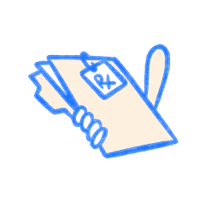The Board of Certification for Emergency Nursing (BCEN) offers specialized certifications for nurses, one of which is the Trauma Certified Registered Nurse (TCRN) exam. The TCRN certification is an important milestone in the career of trauma nurses, reflecting their expertise in managing critically injured patients. However, achieving this certification can be challenging, particularly in certain areas. Here are five topics often considered the most difficult on the TCRN exam and how to prepare for them effectively.
1. Advanced Trauma Life Support (ATLS)
ATLS is a training program developed by the American College of Surgeons to teach a systematic, concise approach to the early care of the trauma patient. It’s the cornerstone of trauma care but can be challenging due to its complex algorithms and the need to memorize a substantial amount of information.
To prepare, focus on understanding the ATLS protocols inside out and back to front. Simulation-based learning and practice cases can be incredibly helpful in cementing this knowledge. There are also several comprehensive ATLS resources and guides available that can help.
2. Hemorrhagic Shock
Understanding hemorrhagic shock involves detailed knowledge of this life-threatening condition’s pathophysiology, diagnosis, and management. Trauma nurses need to be able to quickly identify signs of hemorrhagic shock and take immediate action to prevent patient deterioration.
To master this subject, immerse yourself in case studies involving hemorrhagic shock, paying close attention to the clinical signs and symptoms, diagnostic procedures, and the rapid interventions that must be undertaken. Leverage visual aids and charts for understanding the physiological processes involved in hemorrhagic shock.
3. Traumatic Brain Injuries (TBIs)
TBIs can range from mild concussions to severe brain damage, and managing these injuries can be intricate due to the brain’s complexity. Furthermore, patients with TBIs often present with other injuries, which makes assessment and management even more challenging.
To excel in this area, thoroughly study the anatomy and physiology of the brain, and understand the different classifications of TBIs. Explore various TBI scenarios and the appropriate nursing interventions for each. A deeper understanding of neuro assessments can also aid in grasping this topic.
4. Pediatric Trauma
Pediatric trauma can be particularly challenging due to the physiological and anatomical differences between children and adults. This topic requires knowledge of pediatric assessments, common injury patterns, and age-specific interventions.
To prepare for pediatric trauma questions, study pediatric anatomy and physiology and familiarize yourself with pediatric-specific trauma assessments. Review common pediatric injuries and their management, and make sure to understand the differences in approach compared to adult patients.
5. Burn Injuries
Burn injuries present unique challenges in trauma care, including burn classification, fluid resuscitation, pain management, and wound care.
Study the different burn degree classifications and their corresponding treatments to understand burn injuries. Understand the calculations for fluid resuscitation, and familiarize yourself with the different types of dressings and wound care techniques.
Remember, becoming a TCRN is a journey that involves consistent study and practical application of the knowledge acquired. Using diverse learning techniques such as case studies, visual aids, simulation training, and flashcards can help you master these difficult topics and excel on your TCRN exam.

